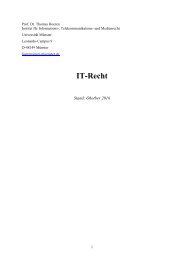3d4yVkKMl
3d4yVkKMl
3d4yVkKMl
You also want an ePaper? Increase the reach of your titles
YUMPU automatically turns print PDFs into web optimized ePapers that Google loves.
- 68 -<br />
As previously noted, JARPA II operates within the Southern Ocean Sanctuary (see<br />
paragraph 120). Paragraph 7 (b) does not apply to minke whales in relation to Japan, as a<br />
consequence of Japan’s objection to the paragraph. As stated above (see paragraphs 229-230), the<br />
Court considers that all whaling that does not fit within Article VIII of the Convention (other than<br />
aboriginal subsistence whaling) is subject to paragraph 7 (b) of the Schedule. It follows that Japan<br />
has not acted in conformity with its obligations under paragraph 7 (b) in each of the seasons of<br />
JARPA II during which fin whales have been taken.<br />
5. Alleged non-compliance by Japan with its obligations under<br />
paragraph 30 of the Schedule<br />
234. In its final submissions, Australia asks the Court to adjudge and declare that Japan<br />
violated its obligation to comply with paragraph 30 of the Schedule, which requires Contracting<br />
Governments to make proposed permits available to the IWC Secretary before they are issued, in<br />
sufficient time to permit review and comment by the Scientific Committee. Paragraph 30 states<br />
that the proposed permits should specify: the objectives of the research, the number, sex, size and<br />
stock of the animals to be taken; opportunities for participation in the research by scientists of<br />
other nations; and the possible effect on conservation of the stock.<br />
235. Although the alleged violation of paragraph 30 was not framed as a submission in<br />
Australia’s Memorial, the Memorial addressed the issue, as did Japan’s Counter-Memorial.<br />
236. Australia raises two complaints with regard to paragraph 30 that Japan has failed to<br />
provide proposed permits for review prior to the commencement of each season of JARPA II and<br />
that the annual permits do not contain the information required by paragraph 30.<br />
237. In response, Japan points out that, prior to the present proceedings, Australia had not<br />
complained within the Scientific Committee regarding this alleged breach of paragraph 30. Japan<br />
explained that the JARPA II Research Plan was submitted two months in advance of the IWC’s<br />
June 2005 meeting, prior to the issuance of any special permits for JARPA II, and that the<br />
Scientific Committee reviewed and commented on the proposal, in keeping with the<br />
then-applicable Guidelines, reflected in Annex Y. Japan asserts that for a multi-year programme<br />
such as JARPA II, only the initial proposal is reviewed by the Scientific Committee and that<br />
“ongoing unchanged proposals that have already been reviewed” are not subject to annual review.<br />
According to Japan, this had been the practice of the Scientific Committee prior to the submission<br />
of the JARPA II Research Plan and it has been formalized by Annex P.<br />
238. As regards the question of timing, the Court observes that Japan submitted the<br />
JARPA II Research Plan for review by the Scientific Committee in advance of granting the first<br />
permit for the programme. Subsequent permits that have been granted on the basis of that proposal



